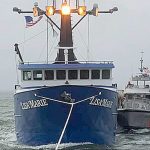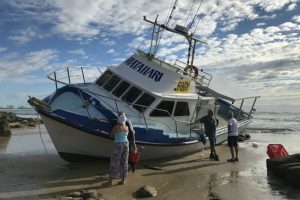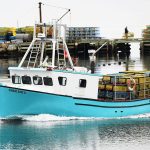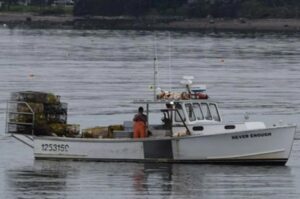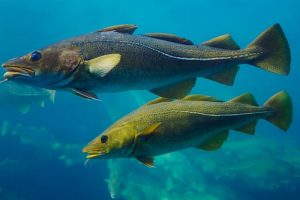Daily Archives: May 6, 2020
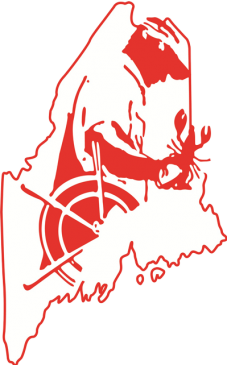
Court ruling threatens Maine’s lobster industry, MLA seeks donations to support its intervention in the case
Thousands of Maine’s family-owned lobstering businesses are at risk of extinction because of a recent federal court ruling citing a violation of the Endangered Species Act by the National Marine Fisheries Service. “The world’s most sustainable fishery could be shut down. And that is something that the Maine Lobstermen’s Association cannot let happen,” the association said in a press release today. “The MLA has launched a campaign to raise $500,000 to save Maine’s lobster industry,” Executive Director Patrice McCarron said in the release. The MLA is an intervenor in the court case and is the only organization in Maine that has been granted standing to participate in the case. >click to read< 15:20
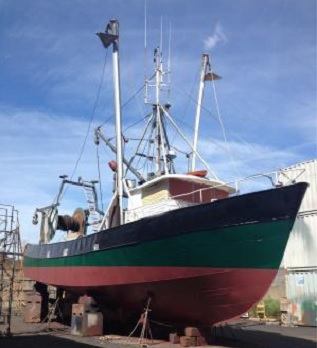
Athearn Marine Agency Boat of the Week: Price Reduced! 60′ Gladding & Hearns Steel Dragger, With State/Federal Permits
To review specifications, information and 5 photos, >click here< Vessel is in good condition. To see all the boats in this series, >click here< 13:37
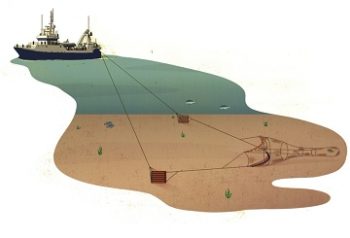
At Sea Observer – Whistleblowers say workplace abuse hides true impacts of B.C.’s trawl fishery
Under the at-sea observer program, observers are required to estimate bycatch on ships, often while mountains of fish are being dumped on deck and unwanted species are being thrown overboard. Observers are also expected to take biological samples and count and assess the condition of prohibited species, which can include valuable fish like halibut, all while staying out of the way.In early April, the Fisheries and Oceans Canada suddenly ordered the observers off the boats for 45 days due to safety concerns around COVID-19. >click to read< 12:50
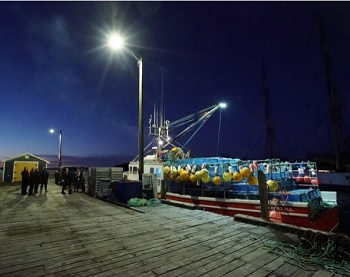
Federal Fisheries Minister Bernadette Jordan says financial aid for fishermen in Atlantic Canada is days away.
The pledge comes amid both economic and health concerns caused by the Coronavirus pandemic and $252 million in aid announced for Canadian farmers and food processors this week. The pandemic has already delayed the start of the lucrative spring lobster fishery in the Gulf of St. Lawrence as processors warn about slumping demand and their ability to safely process the glut that will arrive when catches land after the season opens May 15. “We know that [harvesters are] going to have some very challenging times this season and we will have more to say about that and what we will be able to do in the coming days,” Jordan said Tuesday during a virtual sitting of Parliament. >click to read< 11:15
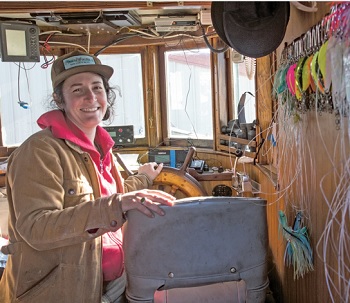
Port Townsend: Captain Kat Murphy fishes to feed her community
She likens it to “chasing wild herds of buffalo.” On her 38-foot wooden power troller, “Grace,” and with one other crewmember, Murphy spends her days trolling for salmon—a fishing method that leads her through sparkling waters buffeted by Alaska’s rocky coastlines and small towns. “We’re the wandering trollers,” Murphy said. “Because of our gear type, we’re not limited to these tiny areas.” Off the coast of Baranof or Kruzof or Coronation islands, in the offshore waters of Southeast Alaska, power trollers like Murphy’s “Grace” run high-tension wires weighted with lead balls off hydraulic gurdies from various locations on their boats. The four lines on her boat are interspersed with glittering lures and hooks to attract the wild salmon. >click to read< 10:30
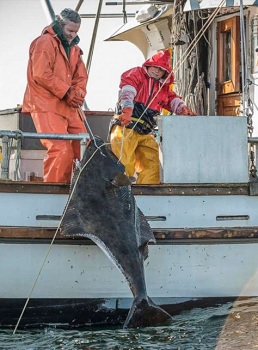
Fishermen, farmers suffering from food supply disruptions concerned for what’s to come
As the coronavirus has spread through the U.S. over the last two months, it has dealt a significant blow to the country’s food supply chain and driven the price of products down so much that those who source them aren’t sure if they’ll get a return on the time and money they’ve invested over the last year. Many are now concerned about what the rest of the year will look like and what it means for the foods they grow. For some fishermen, however, the risk of losing money is too high. California’s commercial salmon season began on Friday, but Mike Conroy, executive director of the Pacific Coast Federation of Fishermen’s Associations, says that with the markets “upended” and 75% of California salmon purchased by restaurants, many fishermen might not go through the trouble of fishing. >click to read< 09:16
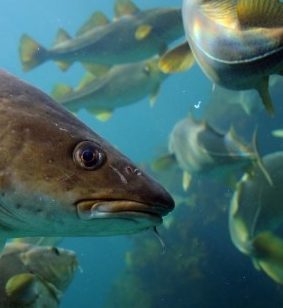
Cod Cannibalism: With natural prey like capelin and shrimp in decline, cod are eating their young
Stalled. That’s how research scientist Karen Dwyer of the Department of Fisheries and Oceans describes the northern cod stock following this year’s assessment. Ecosystem conditions appear to be the main factor, said Dwyer — especially low stocks of capelin and shrimp. “Both of those prey are very important in driving the population dynamics for cod,” she said. While there’s been an increase in different types of zooplankton, Dwyer said, there’s been a decrease in fatty zooplankton. “There used to be large numbers of large fatty zooplankton, full of fat, which are really good for young fish to eat, young fish such as capelin or even young cod,” she said. “Over time they’ve seen a decline in these large fatty zooplankton.” >click to read< 07:18


































